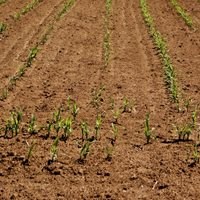(BRUSSELS) – Facing droughts in several EU Member States, the Commission published guidelines Wednesday for applying rules on the safe reuse of treated urban waste water for agricultural irrigation.
With several Member States increasingly suffering from droughts, reusing water from urban waste water treatment plants can become an essential tool to ensure a safe and predictable source of water, whilst lowering the pressure on water bodies and enhancing the EU’s ability to adapt to climate change.
The Water Reuse Regulation, applicable from June 2023, sets out minimum water quality, risk management and monitoring requirements to ensure safe water reuse. The guidelines are complemented by several practical examples to facilitate the application of the rules.
The guidelines would help the EU secure “the safe circulation, across the EU, of food products grown with reclaimed water,” said Environment Commissioner Virginijus Sinkevicius: “In times of unprecedented temperature peaks, we need to stop wasting water and use this resource more efficiently to adapt to the changing climate and ensure the security and sustainability of our agricultural supply.”
Water reuse can limit abstractions from surface waters and groundwater and promote a more efficient management of water resources, through the multiple uses of water within the urban water cycle, in line with the EU’s goals under the European Green Deal.
This drive towards more efficient use of water is also reflected in the recent Commission proposal to revise the Industrial Emissions Directive, calling also for a more efficient use of water across all industrial processes including through water reuse. The upcoming Commission’s proposal to revise the Urban Waste Water Treatment Directive will also aim to further facilitate water reuse.
The Regulation on minimum requirements for water reuse (Water Reuse Regulation) sets harmonised minimum water quality requirements for the safe reuse of treated urban wastewater in agricultural irrigation, with the aim of facilitating the uptake of this practice. The Regulation also foresees the possibility for Member States to decide to introduce this practice at a later stage, on the basis of specific criteria. Such decisions must be regularly reviewed to take into account climate change projections and national strategies, as well as the river basins management plans established under the Water Framework Directive.



